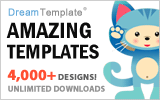jQuery Zoom is a small jQuery plugin for zooming images on mouseover or mousedown. Zoom appends html inside the element it is assigned to, so that element has to be able to accept html, like <a>, <span>, <li>, <div>, etc. It has been tested in: Chrome, Firefox, Safari, Internet Explorer 6, 7, 8, 9, Opera 11. It is released under the MIT License.

Requirements: jQuery Framework
Demo: http://www.jacklmoore.com/zoom
License: MIT License
Express is a minimal and flexible node.js web application framework, providing a robust set of features for building single and multi-page, and hybrid web applications. With a myriad of HTTP utility methods and Connect middleware at your disposal, creating a robust user-friendly API is quick and easy.
Express provides a thin layer of features fundamental to any web application, without obscuring features that you know and love in node.js. Express has a vibrant community of over 7000 watchers on GitHub. It is a very small framework, the 3.0.0 release is only 932 SLOC, and the mandatory portion of Connect which Express is built on is only 267 SLOC. The optional middleware bundled with Connect add an additional 1143 SLOC, and are lazy loaded upon use.

Requirements: Node.js Framework
Demo: http://expressjs.com/
License: MIT License
Gridster is a jQuery plugin that allows building intuitive draggable layouts from elements spanning multiple columns. You can even dynamically add and remove elements from the grid. It is on par with sliced bread, or possibly better.
Gridster has been tested on Internet Explorer 9+, Firefox, Chrome, Safari and Opera. It is released under MIT License.

Requirements: jQuery Framework
Demo: http://gridster.net/
License: MIT License
Sidetap is a simple framework that allows you to quickly build platform-independent mobile web interfaces. It is an easy-to-use implementation of the side navigation pattern popularized by apps like Sparrow and Facebook. It solves many common mobile development problems right out of the box.
Sidetap only weighs 2k when minifyied and gzipped. It aims to always deliver the best possible experience for all devices by starting with a basic experience and progressively enhancing it for more capable devices.
Sidetap provides a flexible foundation for navigating between content panels on mobile devices using an easy-to-use syntax. It has been tested on jQuery 1.7.2 and Zepto.js.
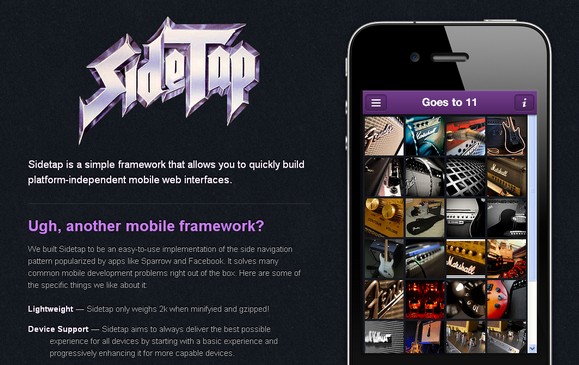
Requirements: jQuery Framework
Demo: http://sidetap.it/
License: MIT License
Stitches is an HTML5 sprite sheet generator. Simple drag and drop image files into the space below and click “Generate” to create a sprite sheet and stylesheet.
Stitches uses a couple of HTML5 APIs, and it is only currently compatible with the latest versions of Chrome and Firefox. However, it does not work on IE9. It required jQuery 1.7.1+, Modernizr, Dropfile, Flashcanvas for older browser support. It is licensed under MIT License.
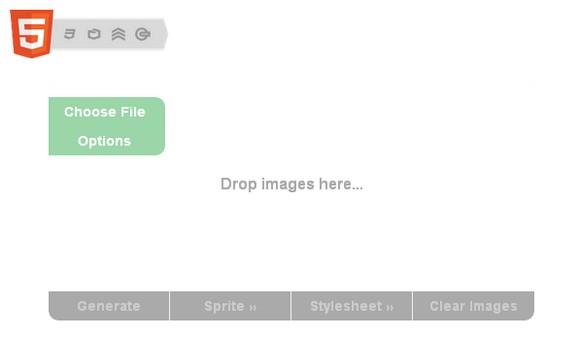
Requirements: jQuery Framework
Demo: http://draeton.github.com/stitches/
License: MIT License
For front-end developers who crave maintainable assets, Jam is a package manager for JavaScript. Unlike other repositories, they put the browser first. Using a stack of script tags isn’t the most maintainable way of managing dependencies, with Jam packages and loaders like RequireJS you get automatic dependency resolution.
You can achieve faster load times with asynchronous loading and the ability to optimize downloads. JavaScript modules and packages provide properly namespaced and more modular code. Every package work in the browser and play nicely with module loaders like RequireJS. They’re not hijacking an existing repository, they’re creating a 100% browser-focused community.

Requirements: JavaScript Framework
Demo: http://jamjs.org/
License: MIT License
Sharrre is a jQuery plugin that allows you to create nice widgets sharing for Facebook,
Twitter, Google Plus and more. All sharing buttons are different, with Sharrre you can create uniform buttons to integrate with your designs.
With Sharrre, the API buttons are called on demand and once, regardless of how many buttons you have. It is highly configurable. Sharrre is tested and supported in major modern browsers like Chrome, Safari, Internet Explorer, and Firefox.
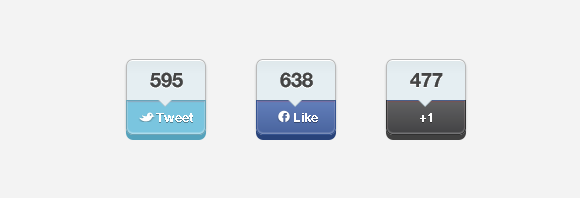
Requirements: jQuery Framework
Demo: http://sharrre.com/
License: MIT, GPL License
Recline.js is a simple but powerful library for building data applications in pure Javascript and HTML. It supplies components and structure to data-heavy applications by providing a set of models (Dataset, Record/Row, Field) and views (Grid, Map, Graph etc).
You can view and edit your data in clean grid interface. You can also bulk update or clean your data using an easy scripting UI. Recline.js is freely redistributable under the terms of the MIT license.

Requirements: Backbone Framework
Demo: http://reclinejs.com/
License: MIT License
Foundation 3 is built on ZURB’s 14 years of experience at building sites and apps for the Web. It is built with Sass, a powerful CSS preprocessor, which allows us to much more quickly develop Foundation itself, as well as sites built with it. You can use the Sass or straight CSS version of Foundation.
New button elements, new navigation types, new form styles and options, and tons of streamlining make this the fastest way to prototype responsively, and to take that code and go right to production. Foundation 3 works all the way back to IE8, they are taking advantage of new, awesome Web technology to help you build better and faster.
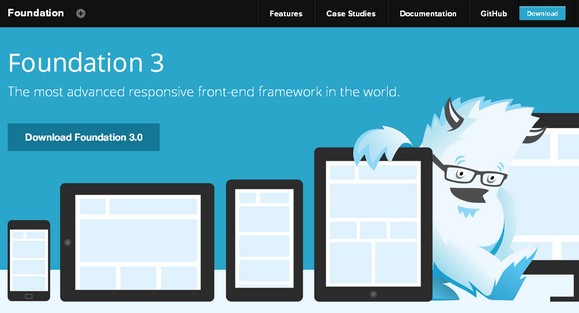
Requirements: –
Demo: http://foundation.zurb.com/
License: MIT License
Brackets is an open-source editor for web design and development built on top of web technologies such as HTML, CSS and JavaScript. The project was created and is maintained by Adobe, and is released under an MIT License. What makes Brackets different from other web code editors?
Instead of cluttering up your coding environment with lots of panels and icons, the Quick Edit UI in Brackets puts context-specific code and tools inline. With Live Development, Brackets works directly with your browser to push code edits instantly, set breakpoints, and jump back and forth between your real source code and the browser view.

Requirements: –
Demo: http://brackets.io/
License: MIT License












